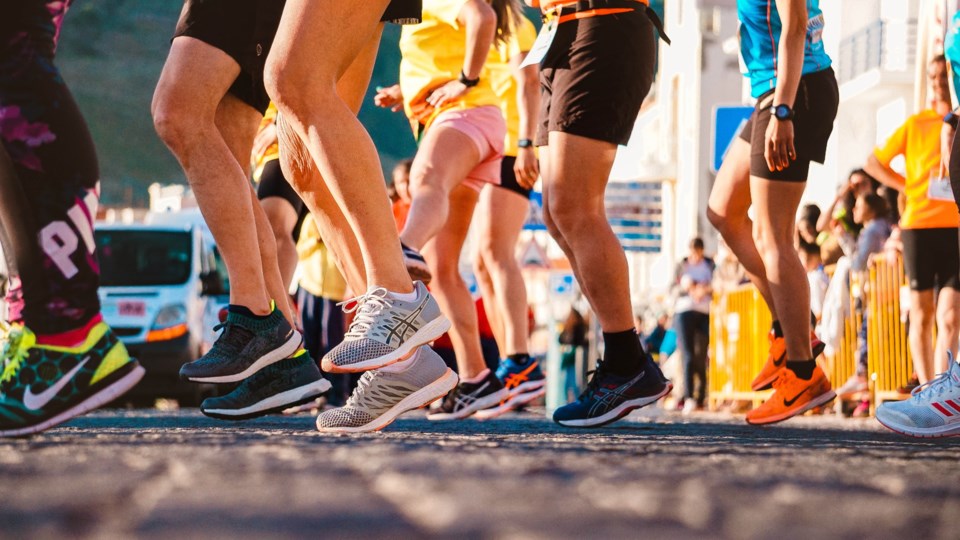By Kyle Lennon, M.D., Northwell Health-GoHealth Urgent Care
Running a marathon is no small feat. The New York City Marathon is coming up on Nov. 5. Don’t let an injury sideline you. As a Team Northwell runner, I am currently in training for the NYC Marathon. I know firsthand what it takes to train for and complete a marathon.
The 26.2-mile race requires training for up to 20 weeks. And injuries are common on the road to race day. Follow these 13 tips to stay healthy while you build up your miles and your strength.
1. Practice proper nutrition. Eat a well-balanced and nutritious diet. Consume a wide variety of whole plant-based foods (whole grains, fruits, vegetables, legumes, nuts and seeds). Also, avoid foods that are highly processed. This can decrease inflammation and help with recovery.
2. Incorporate strength and mobility training. Strength training builds muscles and connective tissues that stabilize joints, reducing the risk of muscle and joint injuries. Mobility training improves your joints’ full range of motion and can go a long way when it comes to injury prevention.
3. Increase your training load gradually. Focus on steadily increasing the frequency, duration and intensity of your workouts. This can decrease your risk of an overuse injury.
4. Practice RICE: Rest, ice, compression, elevation. After training, lie down and elevate your feet. Take an ice bath or a cold shower for 10 minutes to improve muscle flow. Wear compression clothing such as socks and shin sleeves while training to limit swelling. Use RICE after your long runs and race day.
5. Spot overtraining. Too much training with too little recovery time can hinder your progress. Signs of overtraining include high resting heart rate, fatigue, trouble focusing, poor sleep and a feeling of heaviness in your legs.
6. Warm up and cool down. Recover with low-impact exercises, including swimming, elliptical machine and yoga. Stretch and use a foam roller to prevent injuries.
7. Get your shoes fitted professionally. Properly fitted shoes prevent blisters, toe ligament damage and stress fractures, and make your runs more comfortable.
8. Stock up for race day. If you’ve been training with energy gels, bring your own on race day so you can use them as your body’s glycogen stores run low. Running long distances can cause blisters. Bring your own bandages to cover blisters and to avoid long lines at the medical tents.
9. Listen to your body during the race. And walk if needed. Some race participants find that taking short walk breaks helps them achieve an overall faster race pace than if they tried to run the entire distance.
10. Rehydrate with more than water. Consume fruits, something salty like pretzels or use an electrolyte tab.
11. Pace yourself. On race day, start slowly, don't get over-excited and start out too fast.
12. Safely recover. Replenish nutrients with proper hydration and well-balanced, colorful meals. Take five to seven days off from running after the race and focus on lower-impact exercises such as swimming or bicycling. If you feel aches or pains, make an appointment with your provider, or go to your neighborhood Northwell Health-GoHealth. Seeking care for small sports injuries early can prevent them from becoming worse.
13. Enjoy. Find joy in the training. On race day, make sure to have fun and don’t forget to celebrate your amazing accomplishment.
Kyle Lennon, M.D., is a physician with Northwell Health-GoHealth Urgent Care. As a member of Northwell’s NYC Marathon Team, he is raising money for Cohen Children’s Medical Center.





